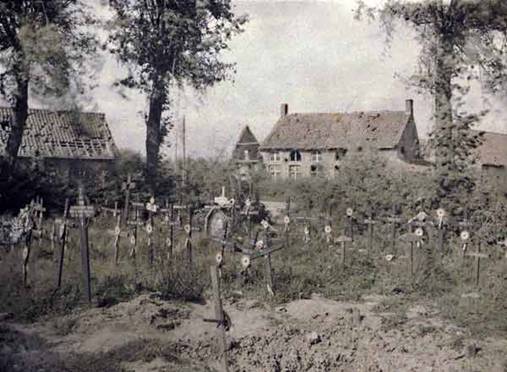Spiritual Sunday – Armistice Day
For the 100th anniversary of Armistice Day, I share an Alfred Noyes poem composed in 1916 when the war was still raging. Written partly from the point of view of soldiers who have died, the poem calls upon us to learn from their sacrifice.
“On the Western Front” is filled with religious language, some of it used ironically. Visiting a cemetery behind the battle lines, the speaker looks at the crosses and thinks of “the peace that is our everlasting life.” This peace, however, is not “the peace of God that passes all understanding.” Rather, it is the peace of the dead, and the dead do not pray.
Referring to the crosses as “the only sign on earth that saves” is multiply ironic. Religious jingoism seems out of place in this setting where we must struggle to find God at all. Nor is it entirely clear what is being saved. Perhaps these markers are all that save the dead from oblivion.
According to Wikipedia, Noyes was working for the British war office when he wrote the poem, his poor eyesight having kept him out of combat. While he supported the two world wars on the grounds of self-defense, he was a pacifist who had opposed the Boer War, and his earlier commitment to peace appears when he points to society’s warped priorities. The following stanza calls us to examine how our own bloated military budget cannibalizes our resources:
For we have heard you say (when we were living)
That some small dream of good would “cost too much.”
But when the foe struck, we have watched you giving,
And seen you move the mountains with one touch.
The silences mentioned in the poem are more powerful than overt judgment. The speaker hears only silence, even as war shakes the earth. Even if the living “betray our hope, to make earth better for mankind,” the dead will not say anything. They will not speak up if we continue to pour our money and technological intelligence into war. (Moving mountains may be another ironic religious allusion.) Their silence, in fact, will grow over time as we forget them.
The poet, however, invites us to imagine the scorn of legions if we fail to truly honor them. Simply decking their graves is not enough.
Think of that as you watch world leaders presiding over today’s ceremonies.
On the Western Front
Alfred Noyes
I found a dreadful acre of the dead,
Marked with the only sign on earth that saves.
The wings of death were hurrying overhead,
The loose earth shook on those unquiet graves;
For the deep gun-pits, with quick stabs of flame,
Made their own thunders of the sunlit air;
Yet, as I read the crosses, name by name,
Rank after rank, it seemed that peace was there;
Sunlight and peace, a peace too deep for thought,
The peace of tides that underlie our strife,
The peace with which the moving heavens are fraught,
The peace that is our everlasting life.
The loose earth shook. The very hills were stirred.
The silence of the dead was all I heard.
II
We, who lie here, have nothing more to pray.
To all your praises we are deaf and blind.
We may not ever know if you betray
Our hope, to make earth better for mankind.
Only our silence, in the night, shall grow
More silent, as the stars grow in the sky;
And, while you deck our graves, you shall not know
How many scornful legions pass you by.
For we have heard you say (when we were living)
That some small dream of good would “cost too much.”
But when the foe struck, we have watched you giving,
And seen you move the mountains with one touch.
What can be done, we know. But, have no fear!
If you fail now, we shall not see or hear.


